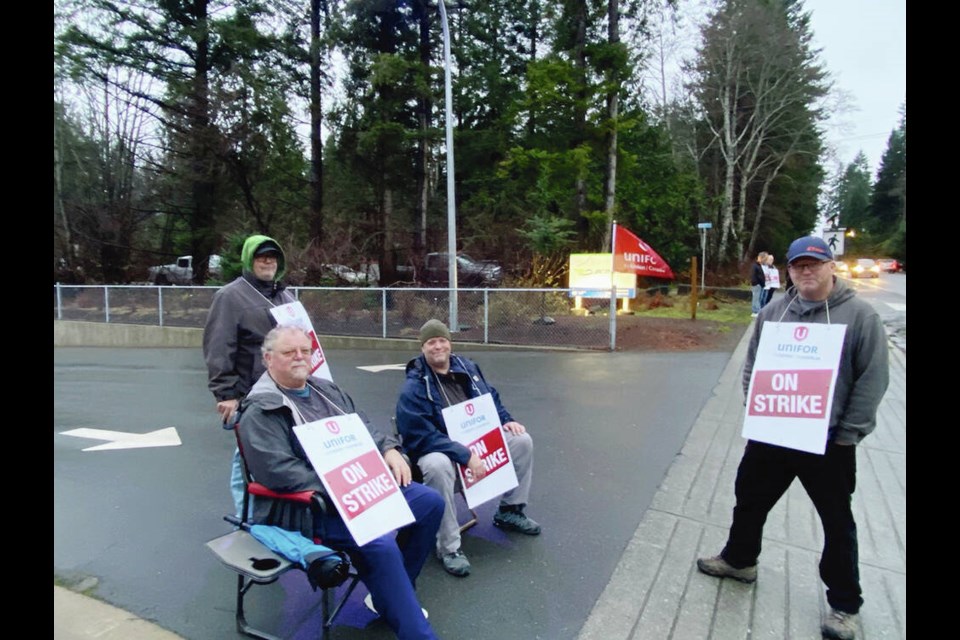The union representing striking bus drivers in Campbell River and the Comox Valley says it’s prepared for four to five months of job action based on other transit disputes in the last two years.
National representative Gavin Davies said Unifor Local 114 members are prepared to run picket lines throughout Christmas and well into the new year. “A lot of the members will want to be home with their families, but [pickets] will be up right through the holidays.”
The union and its employer, Pacific Western Transportation, have not had contact since the strike began on Friday, he said. “Usually, it’s a couple of weeks into a dispute before the parties have further conversations about setting dates.”
The roughly 75 transit workers represented by Local 114 are asking for wage parity with comparably sized transit systems such those in Whistler and the Cowichan Valley.
A recent transit-driver position posting with Pacific Western Transportation, which is contracted by sa国际传媒 Transit to deliver transit service in Campbell River and the Comox Valley, pays $21.18 to $28.48 an hour.
Davies said the latest offer before the strike was higher than what employees in the Cowichan Valley Transit workers currently make, but would still put transit workers in Campbell River and the Comox Valley behind, as Cowichan Valley transit workers are expected to go into contract bargaining in two months.
Compared with bus drivers in Whistler, meanwhile, the wage gap is in an excess of $5 an hour, Davies said.
Transit workers in Whistler accepted a settlement package with PWTransit last year after 137 days of strike action. The deal contained annual wage hikes resulting in a driver hourly wage rising to $36.46 over five years, a two per cent signing bonus, and a cost-of-living adjustment tied to sa国际传媒’s monthly consumer price index.
Davies said the wage discrepancy between transit systems in sa国际传媒 has created a “completely unfair and unsustainable” system.
While he hopes that PWTransit and Local 114 can come to an agreement before the sa国际传媒 government intercedes, as it did for the Whistler transit strike last year as well as the 127-day transit strike in the central Fraser Valley this summer, Davies is not optimistic.
He noted that it took months in Whistler and the Fraser Valley for the province to recommend special mediator Vince Ready, who helped negotiate settlements for both strikes that saw some wins for transit workers.
“But if the provincial government would step in now, that would be a very contentious position for them to take,” he said. “So unfortunately, we have to go through this process.”
PWTransit did not respond to questions when contacted by the sa国际传媒 on Tuesday. The company has previously said it will not comment further.
In a statement released shortly before the job action began, PWTransit said it took every measure to avoid a strike.
When contacted for comment, sa国际传媒 Transit re-issued a statement saying it is “not at liberty to discuss the issue” as it is a labour dispute between PWTransit sa国际传媒, a contractor, and its union.
But Davies questions that position, saying sa国际传媒 Transit “has its fingers all over these contracts.”
“They own the equipment, and in a lot of places — including Campbell River — they own the [depot] property,” he said. “They do everything as far as operating a transit system except for managing employees.”



